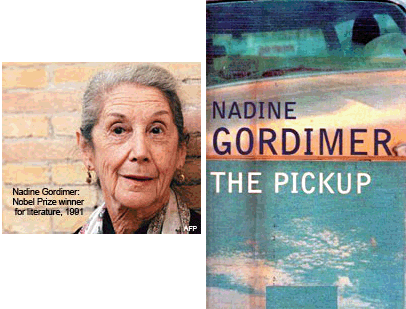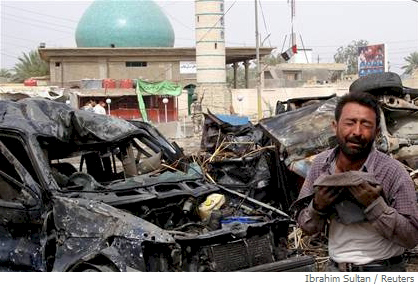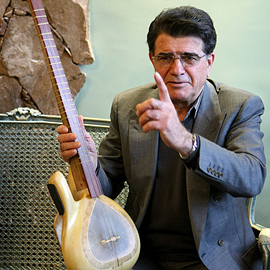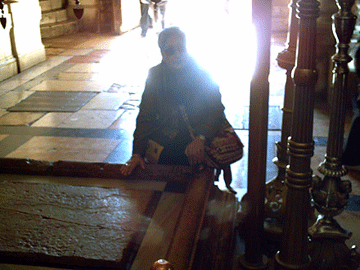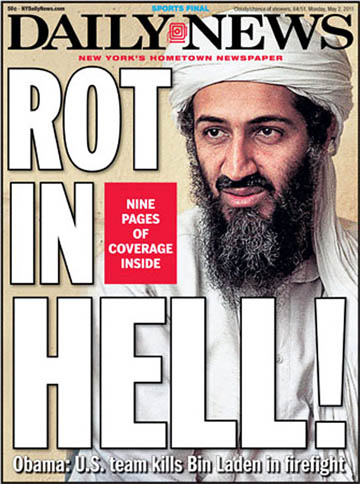
For the past decade it has been “Where the hell is Bin Laden?” Now that he is dead at last, the tabloid mantra is “ROT IN HELL,” at least for the medium of unsubtleness known as the NY Daily News. In less than 24 hours after his James Bond style killing a website appeared on Facebook called Osama Bin Laden is Dead. As can be seen from the screen shot below, the insults of revenge are having their day.

I have no sympathy for Bin Laden, whose obstinate hatred has resulted in an extraordinary waste of life both among Muslims and non-Muslims, but wishing him to hell makes about as much sense as a loony in Florida burning the “Koran.” Continue reading To hell with Bin Laden?
